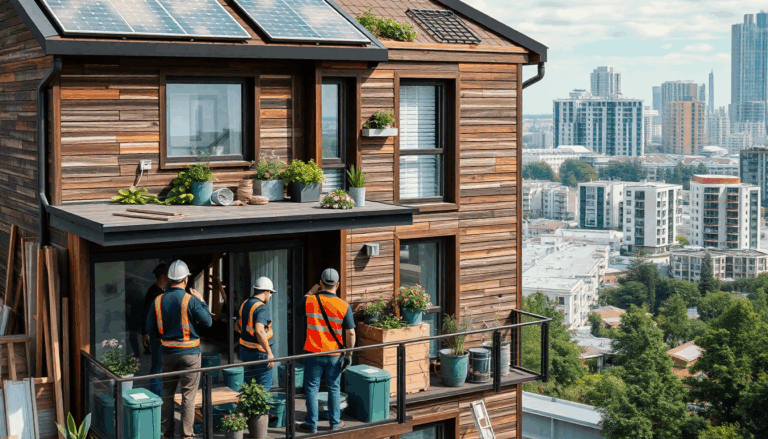Renovations are no longer just about fixing up a space; they represent a golden opportunity to boost property value in today’s ever-changing real estate market. With sustainability, innovative design, and the demand for more functional living spaces on the rise, renovations have become essential for adapting
properties to meet modern needs. So, what are the latest trends in the renovation sector, and how can they translate into economic opportunities? Let’s explore.
Emerging Sustainability Trends
In recent years, we’ve seen a significant shift in the real estate landscape, with sustainable renovations taking center stage. Have you noticed how today’s buyers are more environmentally conscious than ever? This awareness is driving a demand for eco-friendly materials
and energy-efficient technologies. Just think about the benefits of upgrading your home with solar panels or high-quality thermal insulation. Not only will this reduce long-term energy costs, but it also makes your property more appealing to a broader audience interested in sustainable living solutions.
On top of that, the trend towards multifunctional spaces is growing. As remote work becomes more common, many individuals are searching for homes
that can adapt to various needs—think home offices or cozy recreational areas. Renovations that maximize space and promote flexibility are now more sought after than ever. In a world that’s constantly evolving, how can we design spaces that adapt over time without requiring complex future interventions? The answer lies in smart renovation choices.
Understanding the Economic Case for Renovations
Looking at market data reveals an eye-opening trend: renovated properties often see a significant boost in resale value. Did you know that renovated homes can sell for up to 20% more than their non-renovated counterparts? This signals that investing in renovations can lead to substantial returns on investment (ROI). It’s clear that a well-planned renovation can outweigh the initial costs, making it a savvy business move for property owners.
Moreover, buyers are increasingly willing to pay a premium for homes that offer modern comforts and eco-sustainable solutions. Metrics like sales rates and average time on the market provide insights into how renovations are reshaping the real estate sector. For instance, renovated properties tend to spend significantly less time on the market compared to those that haven’t seen any updates. This begs the question: how much time and effort could a smart renovation save you?
Implementing Effective Renovation Strategies
To successfully roll out a renovation strategy, a structured approach is key. The first step? Conduct a thorough assessment of the current property to pinpoint areas needing improvement. Establishing a realistic budget is crucial, too, to account for any unforeseen expenses that might pop up during the renovation process. After all, wouldn’t it be better to have a solid plan in place rather than face unexpected surprises later on?
Choosing the right professionals is equally important. Working with architects and designers who understand current trends and market expectations can significantly impact the final outcome of your renovation. Keeping an eye on key performance indicators (KPIs) such as the cost per renovated square meter and project completion time is essential to keep the renovation within budget and on schedule. You wouldn’t want your project to spiral out of control, would you?
Key Performance Indicators in Renovations
When it comes to property renovations, several KPIs deserve your attention. For example, return on advertising spend (ROAS) for marketing campaigns can provide insights into how renovations influence buyer interest. Have you ever wondered if your advertising efforts are truly making an impact? Tracking the click-through rate (CTR) of listings for renovated properties can help gauge the effectiveness of your promotional strategies.
Additionally, the attribution model used to analyze sales can reveal which stage of the customer journey led to a purchasing decision. Finally, gathering customer feedback is essential for continuously optimizing renovation and marketing strategies. This ensures that renovations not only meet but exceed expectations, ultimately maximizing investment value. Isn’t that the ultimate goal of every renovation?

